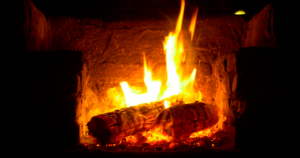The thing about planning, especially contingency planning, is that it has to happen before the issue strikes otherwise it is not planning it is reacting. The thing about reacting is that it is harder to do than plan and sometimes the things you need to help you react are just not available. This is why now, and yes I know it is still sunny most days, is a good time for registered managers and providers to start their planning for the winter.
The UKHSA has a cold weather plan for England, which is worth a look: https://assets.publishing.service.gov.uk/government/uploads/system/uploads/attachment_data/file/1115873/2022-to-2023-cold-weather-plan-for-England.pdf
As we know there are lots of challenges which can face care providers in the winter, these include:

- Staffing
- Illness – staff and service users
- Weather
- Heating and heating breakdowns
- Utility issues
- Food
- Access
- Christmas – yes the dreaded Christmas Rota
If you have not started thinking about winter now is the time to do so.
One of the biggest challenges of winter planning is knowing what staff will do, who will go off sick and who will suddenly be unable to work over Christmas and the New Year. This requires meticulous planning and forethought (see: CAREis extreme weather policy for service users. Here are some of the jobs the manager might want to think about now before the winter sets in:
- Have you got alternative forms of heating if the central heating goes down? This might include hiring in heaters or ones you keep in the service. All of this needs to be compliant and risk assessed, no-one is going to come out of it well if someone gets burnt or scalded or if there is a fire that could have been avoided.
- Having you got alternative lighting / emergency lighting if the electricity goes off? CAREis audits and inspections record your regular testing of emergency lights and enable you to have some confidence that you can see out a short power cut.
- Have you got a plan if you lose electricity? Some providers have the option of generator back up. If this in house, have you checked it and have you got the fuel to run it? If it is provided by an outside company, is the policy up to date and do staff know who to call and how to hook it all up?
- One of the best things about the winter are the log and coal fires which provide comfort and warmth and add a
 homely feel to any care home. Have you had the chimney swept, ordered and stored the logs and coal? Is there a risk assessment in place and do staff know what to do in an emergency? This might be especially important for service users who use emollients and for who, using the risk assessment templates in CAREis care and support, you may need to have a plan to keep safe.
homely feel to any care home. Have you had the chimney swept, ordered and stored the logs and coal? Is there a risk assessment in place and do staff know what to do in an emergency? This might be especially important for service users who use emollients and for who, using the risk assessment templates in CAREis care and support, you may need to have a plan to keep safe. - Have you already planned for the flu vaccine (see a previous post and CAREis’s Flu policy) for service users and staff? Of course, there is the additional complication of COVID vaccines this year too. Time spent in advising staff about flu vaccinations and vaccines in general is both good for staff and service users and could potentially save the manager a lot of time over the winter flu season especially.
- What is your staffing plan for the winter? Do you have a contingency of occasional workers, like people returning from university for the holidays or other people on your bank? What will you do if the weather turns bad and some staff can’t get into work? Who has 4x$ vehicles and what local groups might help if you have this problem? Do you have an agency you like to work with and who are re
 sponsive and to who you give regular work to keep them in the loop?
sponsive and to who you give regular work to keep them in the loop? - What will you do about food if you cannot get deliveries or the utilities stop working? Now is the time to consider alternative warm and nourishing winter menus and get some long-shelf-life products into the pantry. It is also worth considering alternative means of heating food like camping stoves or BBQ
- Of course, one of the things digital care planning, such as CAREis care and support enables is oversight of what is happening in the service remotely. This means managers can stay in touch with their service even from hoe and can also help with some paperwork even if travel to work is not an option.
- Of course, the Christmas roster is one of the most contentious issues in any service with many staff believing their call for the day off is more compelling than everyone else’s. This needs to be sorted now. People can make plans for Christmas if they know what shift they are working, for example having their Christmas in the afternoon or on Christmas Eve or boxing day. Managers need to be fair and to be seen to be being fair, this might mean taking account of all of the holiday days over Christmas as well as the shifts people have worked over the previous Christmas period.
Whatever you are doing in September, there are a wealth of issues which need to be planned for now otherwise this winter may be more challenging that it needs to be. As the old saying goes failing to prepare is preparing to fail.
